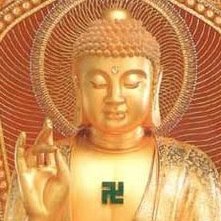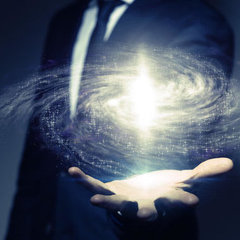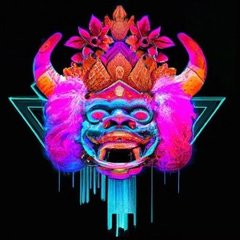-
Content count
539 -
Joined
-
Last visited
About Lois
-
Rank
Dao Bum
Recent Profile Visitors
2,853 profile views
-

The Metamodernism Movement: Embracing Complexity in a Post-Postmodern World
Lois replied to Lois's topic in The Rabbit Hole
-

The Metamodernism Movement: Embracing Complexity in a Post-Postmodern World
Lois posted a topic in The Rabbit Hole
The Metamodernism Movement: Embracing Complexity in a Post-Postmodern World In recent years, a new cultural and philosophical movement has been gaining traction, offering a fresh perspective on the complexities of contemporary society. This movement, known as Metamodernism, emerges as a response to the perceived limitations of both modernism and postmodernism, aiming to reconcile their conflicting narratives and provide a framework for navigating the complexities of the 21st century. Metamodernism is characterized by its embrace of paradox, oscillating between sincerity and irony, optimism and skepticism, idealism and pragmatism. It acknowledges the fragmented nature of our reality while seeking to construct meaningful narratives that transcend these fragmentations. In essence, Metamodernism represents a departure from the skepticism and relativism of postmodernism towards a renewed sense of purpose and direction. The roots of Metamodernism can be traced back to the late 20th century, with the works of authors such as David Foster Wallace, Umberto Eco, and Jean-François Lyotard laying the groundwork for its emergence. However, it wasn't until the early 21st century that the term "Metamodernism" gained widespread recognition, largely due to the efforts of cultural theorists Timotheus Vermeulen and Robin van den Akker. One of the defining features of Metamodernism is its rejection of grand narratives in favor of what Vermeulen and van den Akker describe as "metanarratives" – narratives that acknowledge their own contingency and provisional nature. These metanarratives are characterized by their openness to multiple perspectives and their willingness to engage with complexity and ambiguity. In art and literature, Metamodernism is reflected in works that combine elements of sincerity and irony, nostalgia and innovation. Artists such as Wes Anderson, Lana Del Rey, and Christopher Nolan have been cited as exemplars of the Metamodernist aesthetic, employing techniques that blur the boundaries between high and low culture, past and present, reality and fiction. In politics and society, Metamodernism manifests as a rejection of ideological purity in favor of pragmatic compromise and collaboration. It acknowledges the limitations of traditional political ideologies while seeking to transcend them through dialogue and consensus-building. In this sense, Metamodernism represents a departure from the polarizing rhetoric of contemporary politics, offering a more nuanced and inclusive approach to governance and social change. Critics of Metamodernism argue that its emphasis on complexity and ambiguity can lead to a sense of nihilism and apathy, undermining the possibility of meaningful action and change. They caution against the dangers of relativism and argue for the importance of maintaining clear moral and ethical principles in the face of uncertainty. However, proponents of Metamodernism contend that it offers a much-needed antidote to the cynicism and despair that characterize much of contemporary culture. By embracing complexity and uncertainty, Metamodernism seeks to foster a sense of hope and possibility, inspiring individuals to engage with the world in new and creative ways. In conclusion, Metamodernism represents a bold and ambitious attempt to make sense of the complexities of the 21st century. By embracing paradox and ambiguity, it offers a compelling vision of a more inclusive, open-minded, and dynamic society – one that is capable of transcending the limitations of both modernism and postmodernism and embracing the challenges and opportunities of our rapidly changing world. -
From studying various things I derived 2 philosophical postulates 1. Everything happens in your mind. 2. The world corresponds to itself. At first glance, nothing special, but these are very far-reaching postulates.
-
Non-Euclidean geometry is a branch of geometry that explores geometrical systems which differ from classical Euclidean geometry, developed by the ancient Greek mathematician Euclid. While Euclidean geometry is based on the concept of flat surfaces and straight lines, non-Euclidean geometry studies spaces where this assumption does not hold true. There are two main types of non-Euclidean geometry: hyperbolic geometry and elliptic geometry. Hyperbolic Geometry: In hyperbolic geometry, the parallel postulate of Euclidean geometry is modified. In Euclidean geometry, the parallel postulate states that through a given point, there is exactly one line parallel to a given line. In hyperbolic geometry, however, there can be more than one line parallel to a given line through the same point. This results in the curvature of space, where the angles of a triangle add up to less than 180 degrees. Hyperbolic geometry has many applications in modern mathematics, including in the study of complex analysis, differential geometry, and topology. Elliptic Geometry: Elliptic geometry, also known as Riemannian geometry, differs from Euclidean geometry in that it does not satisfy the parallel postulate at all. Instead, in elliptic geometry, no parallel lines exist, and the shortest distance between two points is along a great circle (a circle on the surface of a sphere whose center is at the center of the sphere). In elliptic geometry, the angles of a triangle add up to more than 180 degrees. Elliptic geometry has applications in fields such as cosmology, where it is used to model the curvature of spacetime in Einstein's theory of general relativity. Non-Euclidean geometry has revolutionized our understanding of space and has profound implications in various areas of mathematics, physics, and other sciences. It has led to the development of new mathematical concepts and theories, providing insights into the nature of our universe that were previously unknown in the framework of classical Euclidean geometry.
-

Modern Psychedelic Art's Origins as a Product of Clinical Experimentation
Lois replied to Lois's topic in The Rabbit Hole
-

Modern Psychedelic Art's Origins as a Product of Clinical Experimentation
Lois posted a topic in The Rabbit Hole
https://erowid.org/culture/art/art_article2.shtml



_YamiBakuraPicsImagesScreencapsandScans.thumb.jpeg.9045a4d7b9219561c2baf9bde301e522.jpeg)



